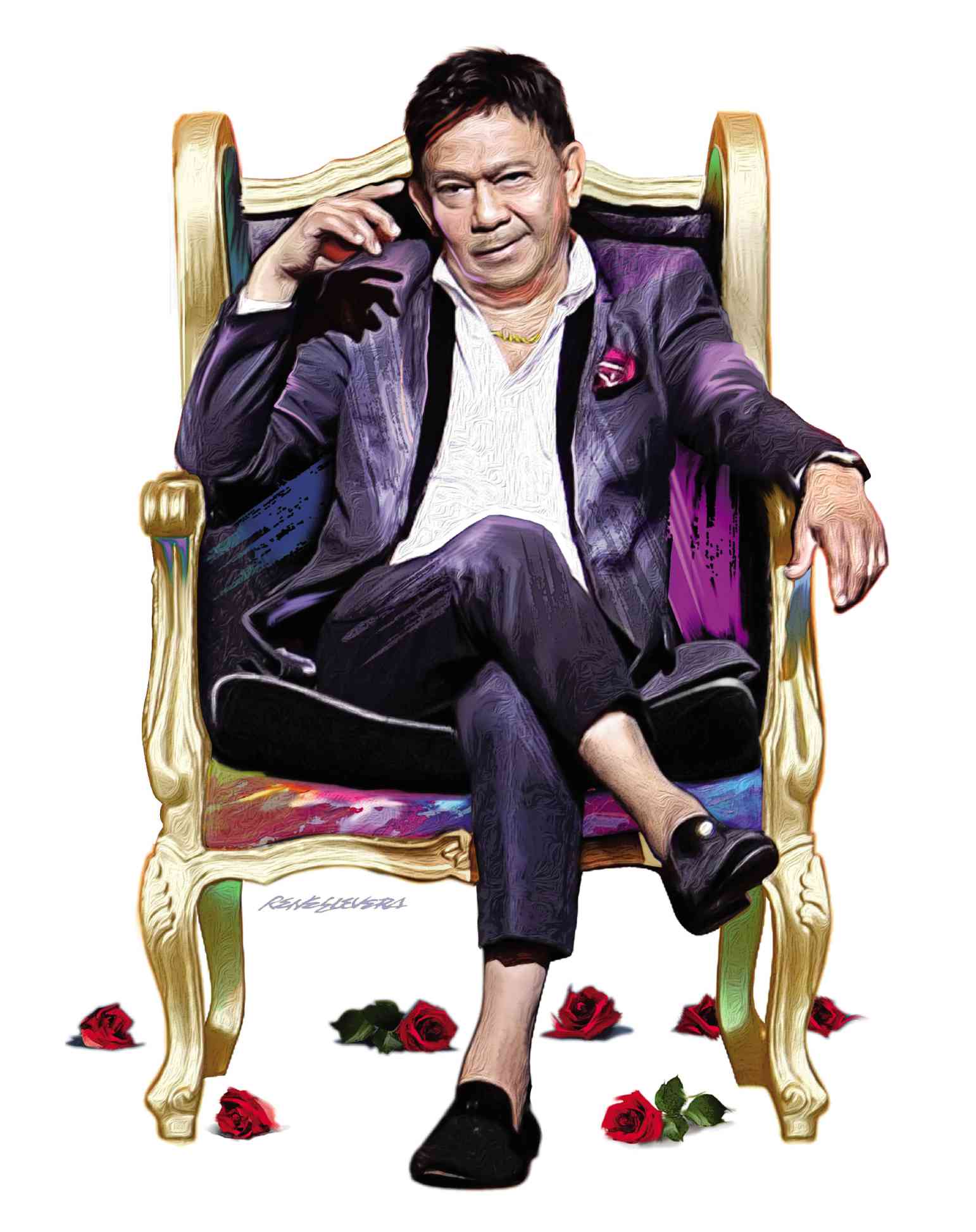Like most Filipinos who heard the news that the inimitable Rico J. Puno had passed away, Ernie dela Peña felt an acute sense of loss.
But his pain cuts more deeply as Puno was more than just an icon in the world of original Pilipino music to him. He was a friend, a colleague and the “total entertainer” who gave life to the lyrics he penned some 40 years ago.
The 86-year-old Dela Peña shed many a tear at the thought that he had lost someone akin to a better half. After all, he and Puno are forever united by the songs they had worked on together.
“Kapalaran” is one of the songs Dela Peña wrote for Puno with the melody written by Chito Ilacad, along with other classics written in collaboration with Charo Unite such as “Lupa” and “May Bukas Pa,” which is his personal favorite of all of their songs.
“Parang ’pag sinabi mo na Rico J. Puno, eh kasunod na ang mga kanta na ginawa namin. (When you mention Rico J. Puno, what follows are the songs that we did together),” Dela Peña said.
The Paco-born Dela Peña said that while he and Puno had not seen each other in years, he knew that the respect and the love were always there and would always be in his heart.
Puno was in a class of his own, Dela Peña said, as he sang from the heart. He never just went through the motions, but instead internalized the message of each song, such that when he sang them, the audience felt what he was feeling.
“Iba siya. (He was different),” Dela Peña told the Inquirer, “Alam niya kung paano ang tamang approach sa mga kanta. (He knew the right approach to every song).”
Puno’s unique style, incomparable voice and singular dedication to the songs, he said, are perhaps the reasons why the songs have remained popular despite the passage of time and the shifting of musical tastes.
“Hindi siya mahirap katrabaho. At ’pag alam niya na ako ang nagsulat, ’di na siya masyado nagtatanong. At palagi ’yan nasa tono, ’di kailangan ng maraming take. (He was not difficult to work with, and he no longer asked questions once he knew that I had written the song. He was always in tune. He did not need a lot of takes),” Dela Peña said.
Puno, in an earlier interview with this writer, said he owed a great deal of his career to Dela Peña.
If Dela Peña wrote it, then it would likely be a hit, said Puno years ago, as he knew what the ordinary Filipino felt.
The singer shared then that “May Bukas Pa,” released in 1978, was particularly special to him as it revived his career that had been at a low at that time.
“He was my savior,” Puno said.
“[With] Mang Ernie, you are assured that his songs that become hits today will become classics tomorrow,” he had said.
Dela Peña started his career in 1956 when he was signed as a recording artist of Hidcor Recording Co. He did not last long as a singer of “kundiman” songs, but became more in demand as a lyricist.
He was comfortable in the background and drew fulfillment from listening to other gifted artists in the stable of Vicor Records — where he worked for some 30 years — give life to the words he wrote to accompany the catchy melodies written by his equally talented colleagues.
Dela Peña said that “May Bukas Pa” was actually considered an entry to the Metro Manila Popular Music Festival (Metropop), but it was “Lupa” that was finally entered.
“Lupa” bagged the third prize during the 1979 Metropop, coming after grand prize winner “Bulag, Pipi at Bingi” of the late Snaffu Rigor and second-placer “Ewan” by Louie Ocampo and Rowena Arrieta.
Dela Peña said that while “Lupa” was only the third placer, it was nevertheless chosen to represent the Philippines during the Tokyo Music Festival.
Puno, expectedly, wowed the crowd there, too, and it was another moment of joint achievement for the duo.
Dela Peña, who wrote some 300 songs over his long career, said he would always write for a purpose, and it was important to him to impart a message, such as of hope that “May Bukas Pa” shared. And only Puno could do it justice.
He said the singer should match the lyrics to lend the songs that authenticity the audience craved.
He wrote the lyrics to these songs, he said, with Puno’s voice, style and personality in mind.
“After I hear the music and learn who will sing the song, that’s when I start thinking of the proper lyrics that will fit it. At the same time, I infuse the song’s correct message to listeners, one that will sell in the market, so that the company won’t lose money,” Dela Peña said in Filipino.
And when they become hits, there is no greater feeling,” he added.
Thus, he gets that heavy feeling now that Puno is no longer around to sing the songs that have meant so much to both of them.
He smiles, though, at the memory of what Puno used to say: He would not be Rico Puno without Ernie dela Peña.
“Masarap marinig, pero sa totoo lang, isa na siyang Rico Puno bago pa nagkaroon ng Ernie dela Peña sa buhay niya. (Nice to hear, but truth to tell, he was already Rico Puno even before an Ernie dela Peña came to his life),” the esteemed lyricist said.


